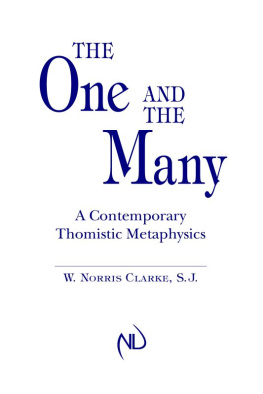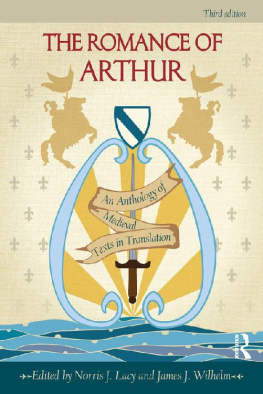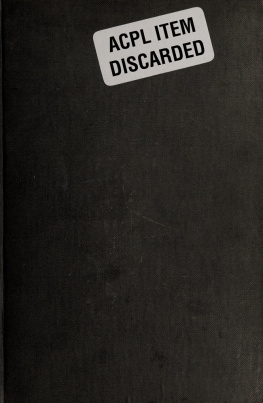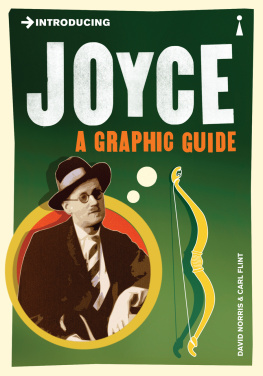W. Norris Clarke S.J. - The One and the Many
Here you can read online W. Norris Clarke S.J. - The One and the Many full text of the book (entire story) in english for free. Download pdf and epub, get meaning, cover and reviews about this ebook. year: 2015, publisher: University of Notre Dame Press, genre: Religion. Description of the work, (preface) as well as reviews are available. Best literature library LitArk.com created for fans of good reading and offers a wide selection of genres:
Romance novel
Science fiction
Adventure
Detective
Science
History
Home and family
Prose
Art
Politics
Computer
Non-fiction
Religion
Business
Children
Humor
Choose a favorite category and find really read worthwhile books. Enjoy immersion in the world of imagination, feel the emotions of the characters or learn something new for yourself, make an fascinating discovery.
- Book:The One and the Many
- Author:
- Publisher:University of Notre Dame Press
- Genre:
- Year:2015
- Rating:4 / 5
- Favourites:Add to favourites
- Your mark:
- 80
- 1
- 2
- 3
- 4
- 5
The One and the Many: summary, description and annotation
We offer to read an annotation, description, summary or preface (depends on what the author of the book "The One and the Many" wrote himself). If you haven't found the necessary information about the book — write in the comments, we will try to find it.
The One and the Many — read online for free the complete book (whole text) full work
Below is the text of the book, divided by pages. System saving the place of the last page read, allows you to conveniently read the book "The One and the Many" online for free, without having to search again every time where you left off. Put a bookmark, and you can go to the page where you finished reading at any time.
Font size:
Interval:
Bookmark:
The One and the Many
A Contemporary Thomistic Metaphysics
W . N ORRIS C LARKE, S . J .
University of Notre Dame Press
Notre Dame, Indiana
Copyright 2001 by University of Notre Dame
Notre Dame, Indiana 46556
www.undpress.nd.edu
All Rights Reserved
E-ISBN 978-0-268-07704-4
This e-Book was converted from the original source file by a third-party vendor. Readers who notice any formatting, textual, or readability issues are encouraged to contact the publisher at
TO G ERALD M C C OOL, S . J .,
in gratitude for the many shared insights of his philosophical and theological wisdom, and for the quiet support and inspiration throughout my own Thomistic journey.
Contents
ONE
TWO
THREE
FOUR
FIVE
SIX
SEVEN
EIGHT
NINE
TEN
ELEVEN
TWELVE
THIRTEEN
FOURTEEN
FIFTEEN
SIXTEEN
SEVENTEEN
EIGHTEEN
NINETEEN
My aim here is to provide an advanced textbook of systematic metaphysics in the Thomistic tradition, one which is alert not only to developments within Thomism but also to contemporary problems and other movements in philosophy. Its inspiration is primarily St. Thomass own rich and profound metaphysical systemin the loose, general meaning of the termwhich I think is still unsurpassed in its depth, comprehensiveness of vision, and coherence not only with direct human experience but with what is known in other fields of knowledge. But my own adaptation of his system for contemporary readers also draws upon various fruitful developments in philosophy since Aquinass time and so is not merely a repetition of his own thought but a creative retrieval of it (to use a term from Heidegger) and sometimes a creative completion of themes implicit in Aquinas but never explicitly developed by him.
Hence this is not intended as a work of historical scholarship aimed at distilling the exact thought in Thomass texts. It is, rather, a creative appropriation of his central metaphysical themes, gathered into a systematic orderpartly traditional and partly my ownwhich he himself did not have the occasion to do. It is presented as far as possible in simplified, streamlined terms more accessible to a contemporary reader than Thomass own writings with their heavy technical apparatus taken over from Aristotle, which was his chosen medium of expression but is not easy for us to be at home in today without a long apprenticeship. Hence I prefer to call my presentation a Thomistically inspired metaphysics, taking my own responsibility for its philosophical validity. There is always risk involved in transposing a philosophers thought into the framework of a different language and cultural background. But the risk is worth it, I think, if Thomass own profound seminal insights and rich integrating vision of reality are to enter effectively into the bloodstream of contemporary thought and be made available to those, young and old, who are seeking to appropriate for themselves our rich medieval cultural heritage, and especially to develop for themselves some kind of holistic vision of the intelligibility and meaningfulness of our universe as a whole and our human life within it.
The need for such a contemporary rethinking and representation of the core of Aquinass philosophical wisdom, his metaphysics, has become more and more evident. In the recent past, in what has been called the heyday of American Thomism, there were a number of distinguished textbooks of Thomistic metaphysics available; but most have now gone out of print and few new ones are available, at least at a price accessible to students. Outside of the Thomistic and Scholastic traditions, textbooks in Metaphysics today usually mean something quite different from the great classical tradition of systematic metaphysics in the style of Aristotle, Aquinas, Duns Scotus, Spinoza, Leibniz, Hegel, Whitehead, etc. The very notion of constructing a unified systematic philosophical inquiry into being as a whole, distinct from other philosophical disciplines, has been abandoned by most contemporary philosophers (Whiteheadian Process philosophy is one of the few exceptions still flourishing). This is largely due to the many attacks on the very possibility of such a systematic metaphysics stemming from modern philosophers like Hume and the empiricists, Kant and analytic philosophers generallyfor whom, like Strawson, descriptive metaphysics is in; explanatory metaphysics is out. Not to mention the latest phase of deconstruction and postmodernism, which, according to Prof. Miller of Yale, has dismantled the entire engine of Western metaphysics beyond hope of repaira premature epitaph for a discipline which, as Gilson puts it graphically, has always buried its undertakers.
As a result, what goes by the name of Metaphysics in most contemporary American textbooks bearing the name is not a systematic study of being at all, but a grab bag of diverse particular philosophical problems whose only common bond is that they cannot be solved by scientific inquiry, logical analysis, or the descriptive methods of phenomenology. Examples are the mind-body problem, realism vs. idealism in epistemology, free will, the existence of God, and the like.
The present text is, therefore, a return to a systematic metaphysics of being in the classical Thomistic tradition. The need to make this tradition available to our own day is more urgent now than ever, in the face of the growing tendency of our culture toward specialization and fragmentation of inquiry into careful piecemeal work, as the well-known American philosopher Sidney Hook approvingly described the current fashion in American philosophy (in the editorial preface to his American Philosophers at Work). But with no integrating vision of reality and human life as a whole to balance off this piecemeal approach, we tend to become fragmented people, with our lives in pieces, so to speak, perpetually condemned to fragmentary perspectives, as one former student of mine and lover of metaphysics recently expressed it colorfully. This textbook, therefore, is dedicated to the search for an integrated vision of reality as a whole, to fulfill the need to balance off the fascination of the part with the vision of the whole, as someone described the role of philosophical inquiry within a liberal education. I present it, accordingly, as a Thomistically inspired exploration of the central problems of such a metaphysics in the classical tradition, for which I am indebted principally, but not exclusively, to the profound insights and disciplined method of inquiry of St. Thomas himself (but for whose contemporary transposition and expression I alone take full responsibility). Now let us validate the project, we hope, by its execution!
I must end by warning my readers, lest their expectations be disappointed, that this does not pretend to be a history of metaphysical systems in any way, nor does it regularly compare the position of St. Thomas with that of other rival systems on each point. That is in itself an important and illuminating part of ones philosophical education, especially for graduate students. But it would make the book impossibly long to attempt to do this adequately in a single volume. I believe anyway that metaphysical systems are more properly compared as wholes, not as parts abstracted from the whole. Hence, my purpose is to offer only a systematic exposition of Thomistic metaphysics in itself. A teacher using it will have to provide historical background and comparisons with other resources. I believe also that the best method to train anyone in metaphysical thinking is not to stand back and compare brief snapshots of many different thinkers, none in depth. Rather, it is to engage the subject like an apprentice, going deeply and thoroughly into one great system of thought, seeing how the problems and solutions are systematically connected, so that if one holds something in one area, one cannot implicitly deny it in another and remain consistent. Having once learned how a metaphysical system is put together and holds together, one can then step back and evaluate it critically, compare it with others, and decide how much one wants to accept, adapt, revise more radically, or reject for some other position. One can learn metaphysical thinking only by first
Next pageFont size:
Interval:
Bookmark:
Similar books «The One and the Many»
Look at similar books to The One and the Many. We have selected literature similar in name and meaning in the hope of providing readers with more options to find new, interesting, not yet read works.
Discussion, reviews of the book The One and the Many and just readers' own opinions. Leave your comments, write what you think about the work, its meaning or the main characters. Specify what exactly you liked and what you didn't like, and why you think so.











